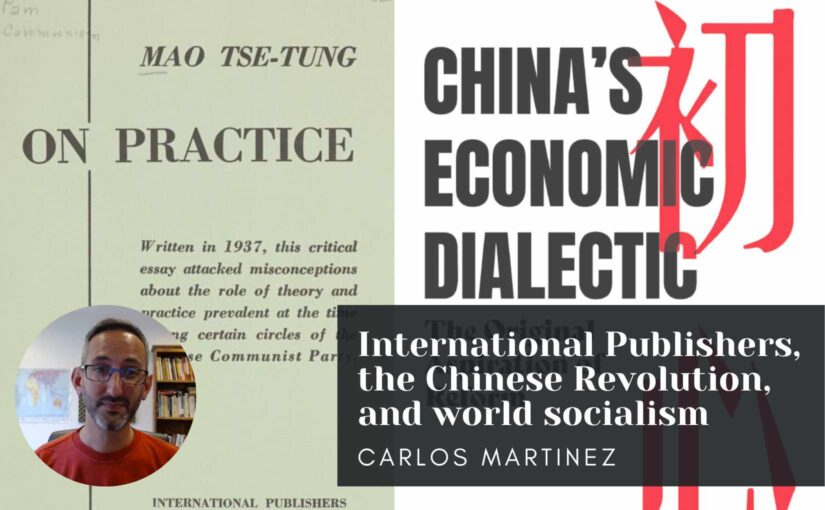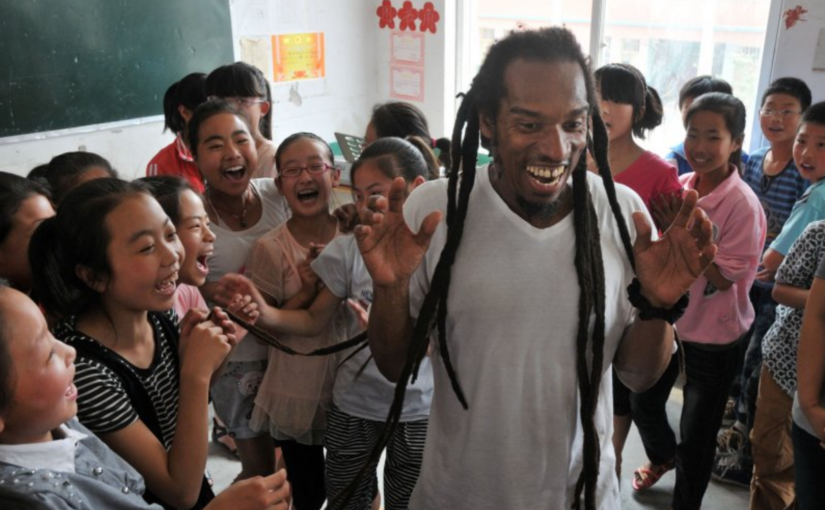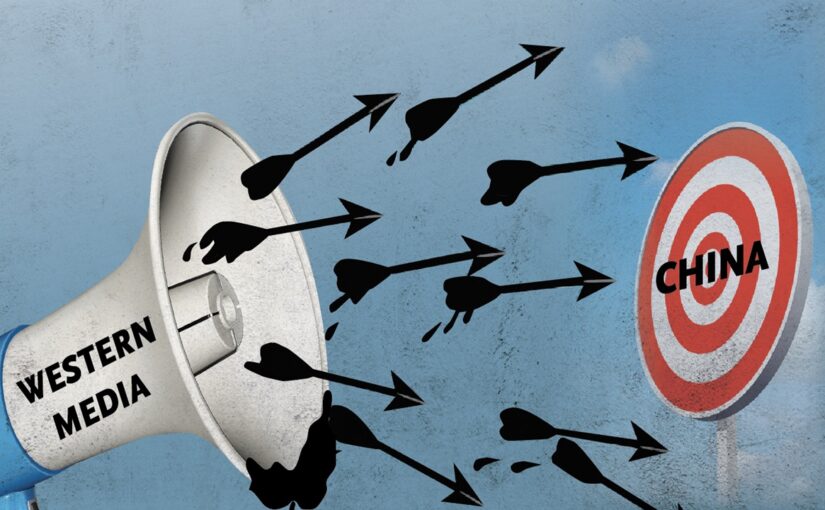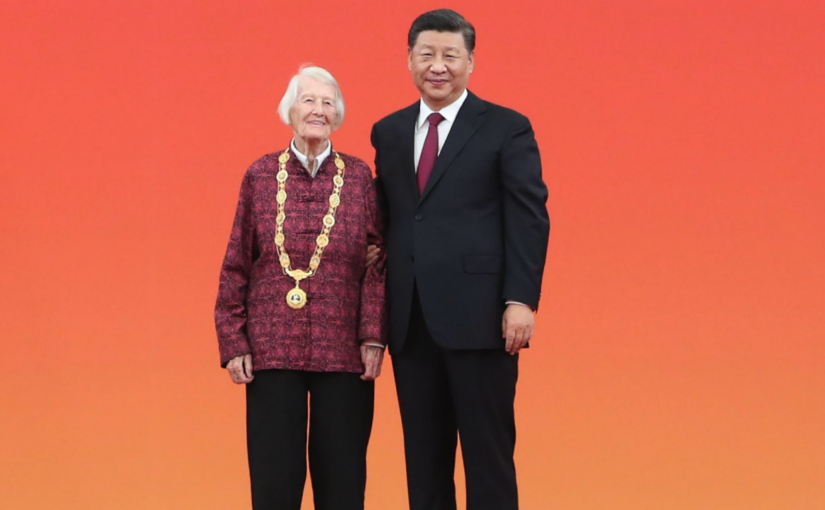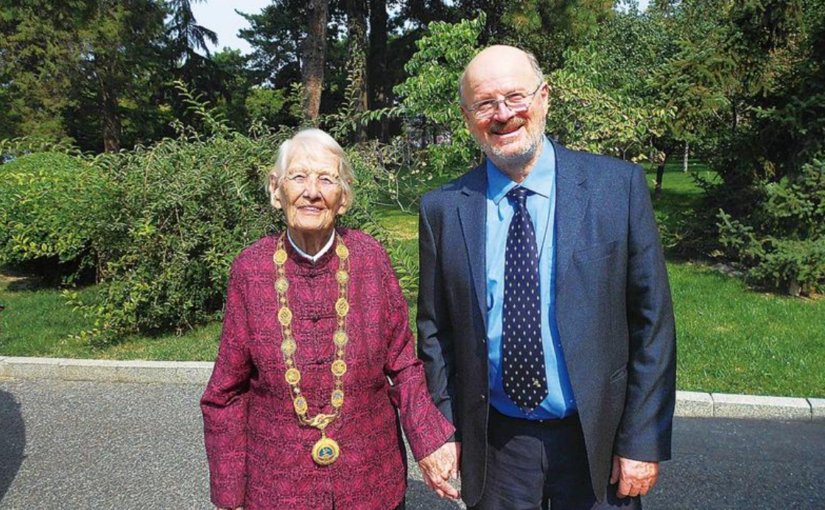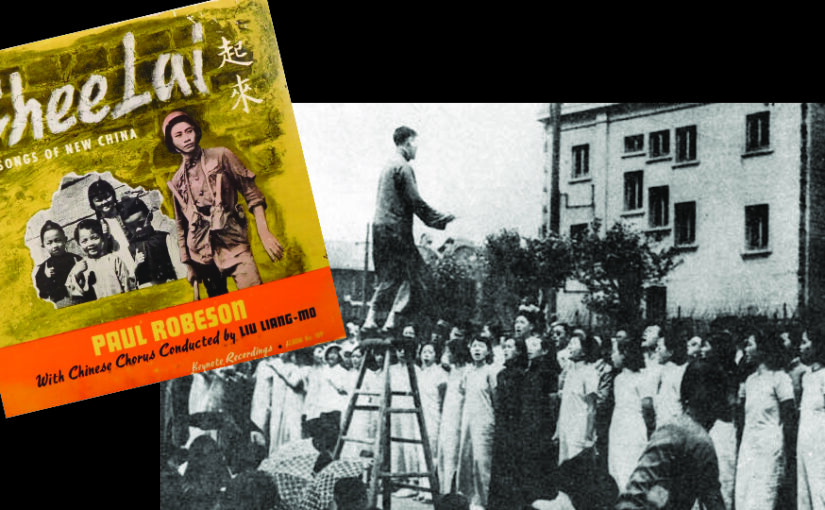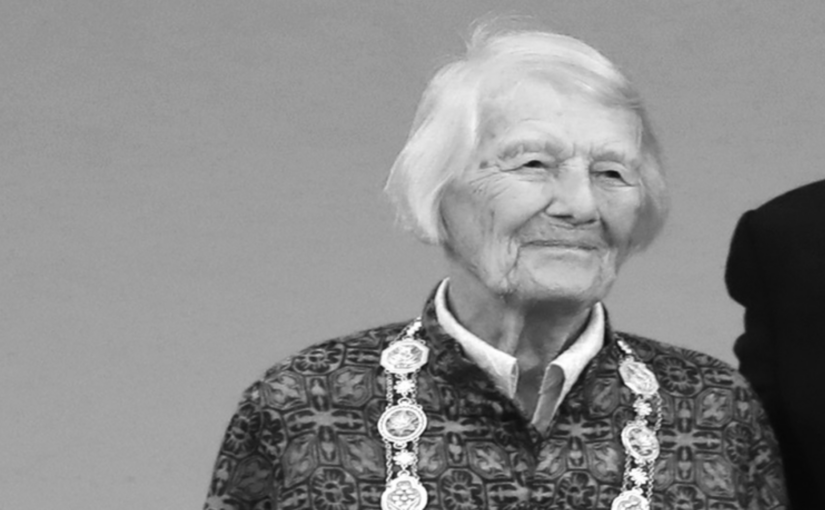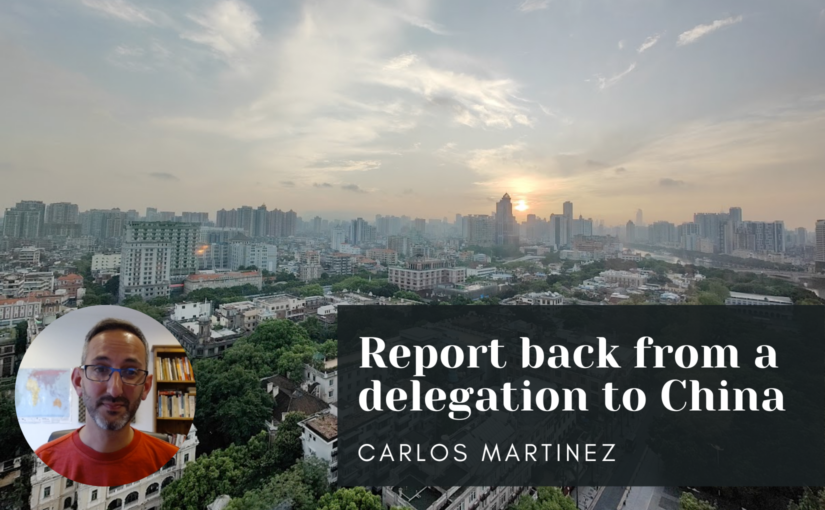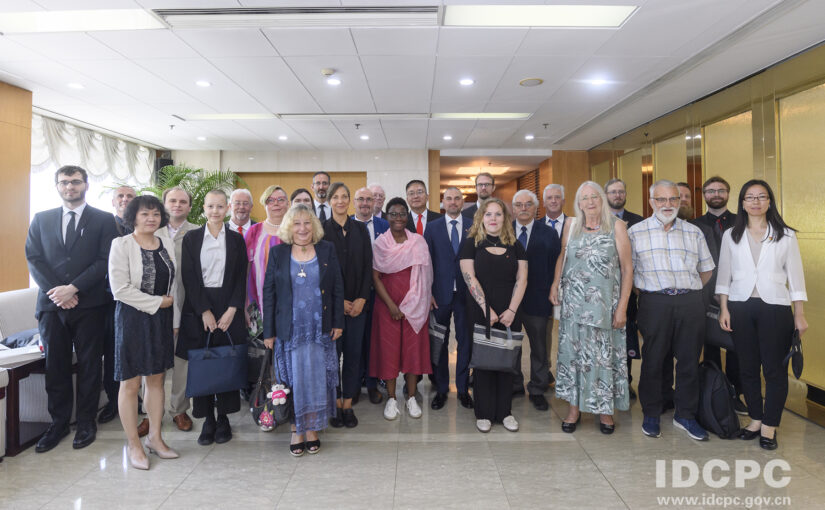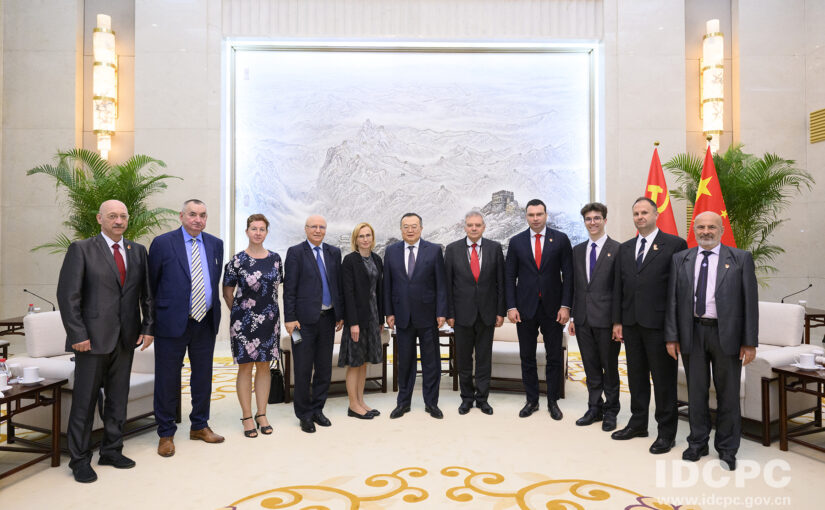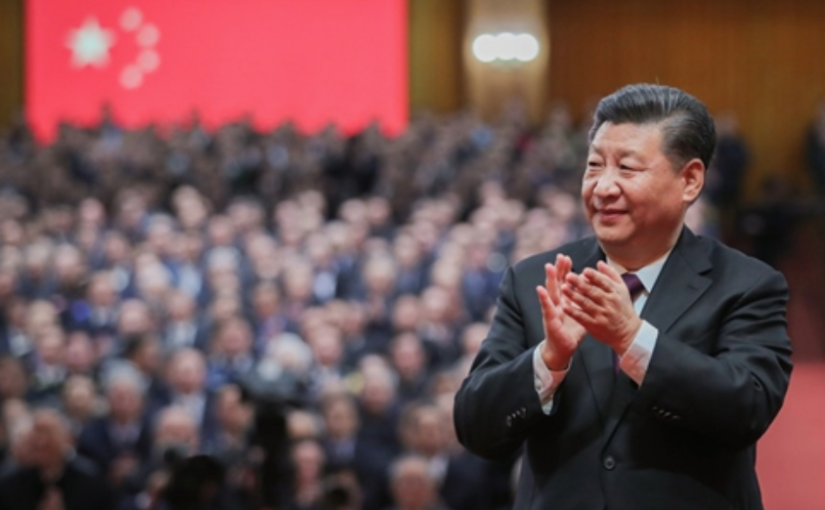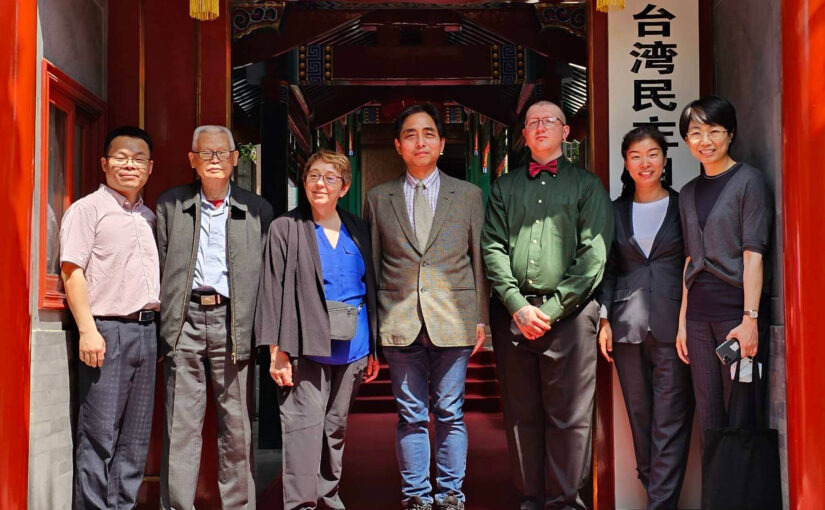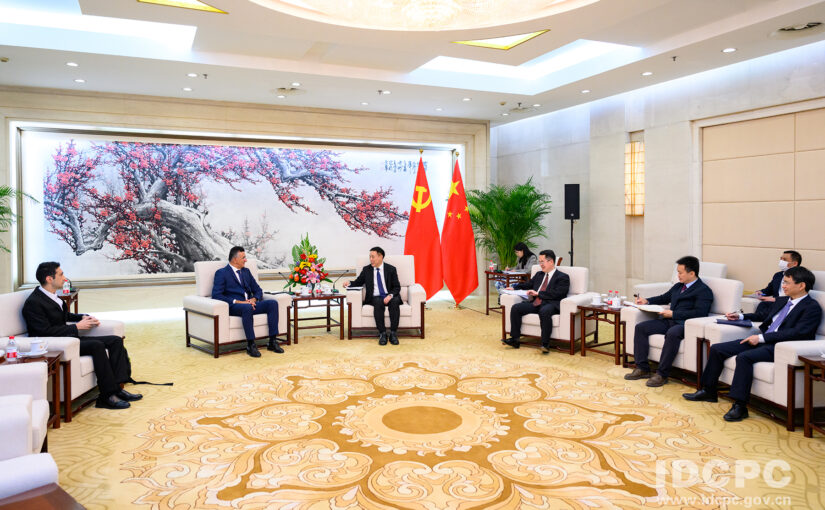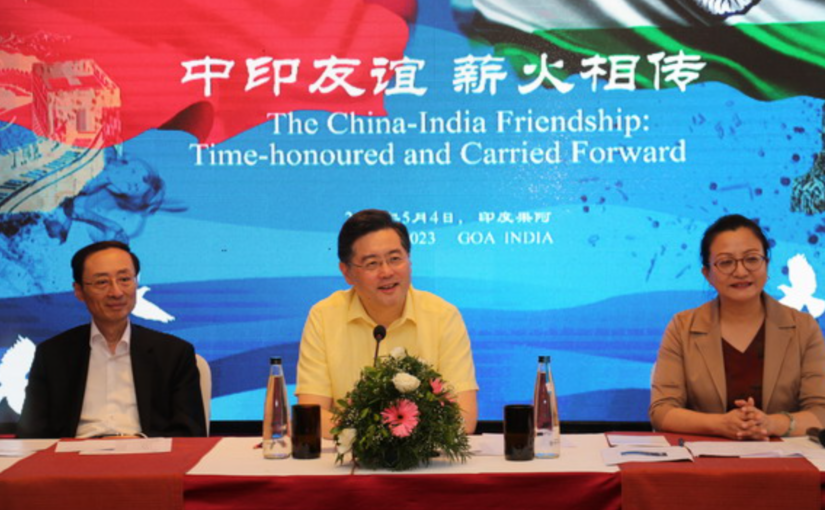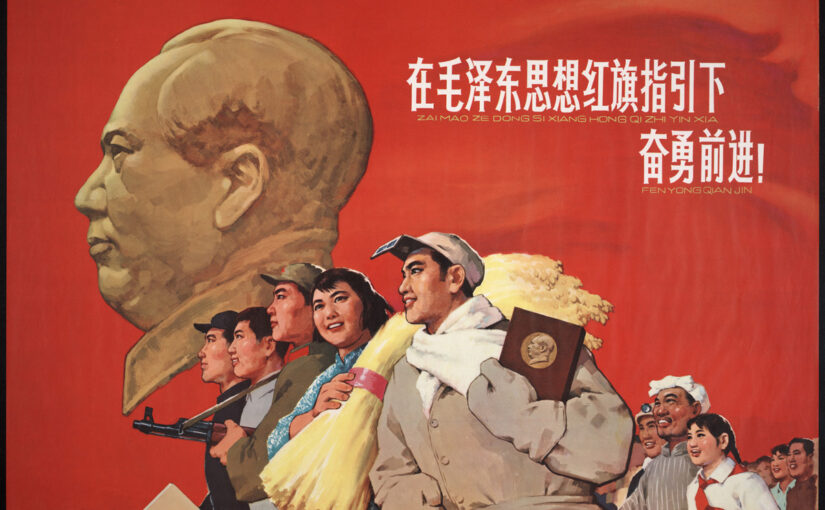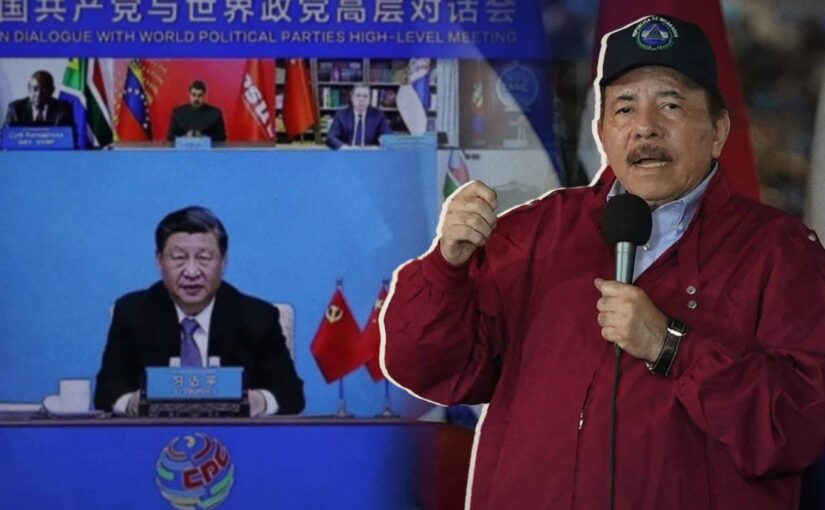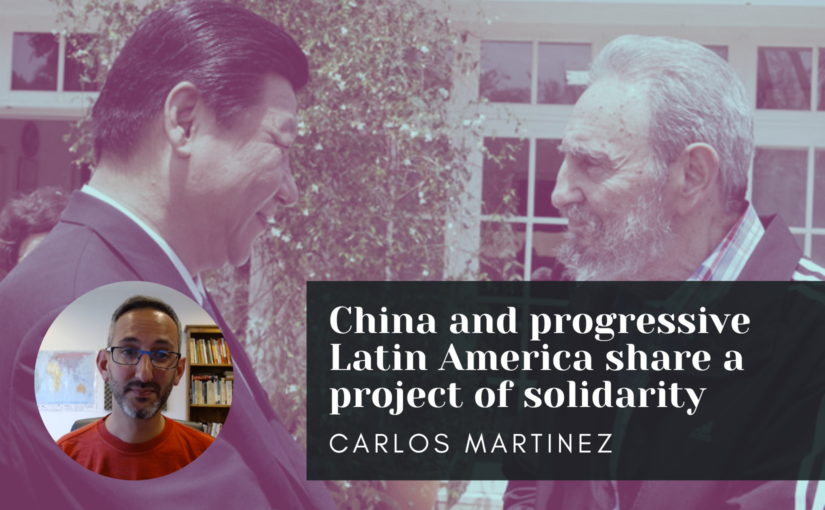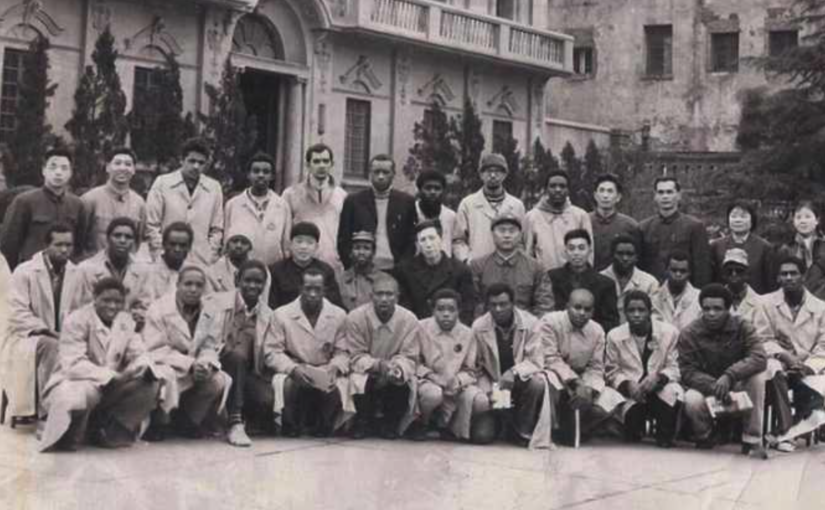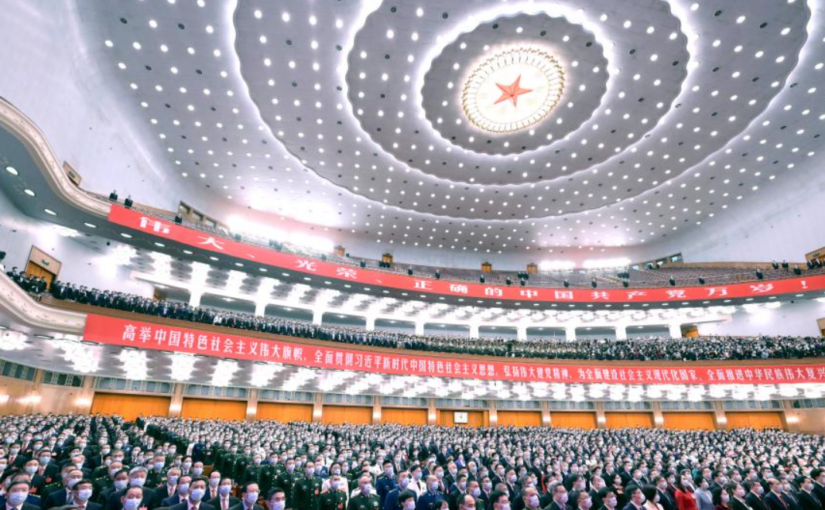The celebrated British poet, novelist and campaigner Benjamin Zephaniah passed away on 7 December 2023. Zephaniah was a friend of China and owned a flat in Beijing, spending several months a year there, writing and training in martial arts. His famous novels Refugee Boy, Gangsta Rap and Teacher’s Dead were written in China.
His funeral is being held today, 28 December 2023. We publish below a brief obituary by Friends of Socialist China co-editor Carlos Martinez.
One of Britain’s most important and impactful cultural workers breathed his last breath on 7 December 2023, having been diagnosed with a brain tumour eight weeks previously.
Benjamin Zephaniah was widely known as a poet, author and actor, but also as a tireless and courageous campaigner for justice. He never hesitated to speak his mind; he never put his career before his principles. He was quite unique in his ability to cut through ruling class cultural hegemony – a function of his prodigious talent and his strong roots in the British working class, in particular among oppressed communities.
As a black man from a working class Jamaican background, Zephaniah faced racism all his life, and anti-racism was one of his main areas of focus as an activist. For decades, he stood shoulder to shoulder with oppressed peoples demanding equality – indeed he was among those marching in Southall on 23 April 1979 to defend the local population against the National Front, on which occasion the Metropolitan Police, acting in defence of and in cahoots with the fascists, killed Blair Peach.
Zephaniah well understood that the fundamental purpose of racism is to divide working people. He wrote a few years ago:
“I have always thought that poor white people and poor black people should unite and confront the people who oversee all of our miseries… The biggest fear of all of the mainstream politicians is that we all reach a point where we understand how much we have in common and, instead of turning on ourselves, we turn on them. In poetry and prose I have said that unity is strength, and that we should get to a point where we are not talking about black rights or white rights, Asian rights or rights for migrant workers; we are just talking about our rights.”
He elaborated on this point in his 2018 autobiography, The Life and Rhymes of Benjamin Zephaniah, where he talked about the racism he would sometimes face doing miners’ strike solidarity work in the mid-1980s. In response to some miners in Nottinghamshire shouting derogatory remarks while he was performing, another miner jumped on stage and “delivered a diatribe against racism and urged working-class people to stick together, pointing out that I was the person who in the previous week had sent them a donation of £1,500 (a lot of money in those days) from an African-Caribbean association, and they, the miners, were happy to take the money and feed their kids.”
Reflecting on how miners’ attitudes towards black workers shifted over the course of the strike, Zephaniah noted: “The miners realised they couldn’t win the fight on their own; they needed the solidarity of their wives, black poets, Chinese chefs and Bengali factory workers… Those who were involved in that strike will never forget the picket line battles, the workers’ solidarity, the lessons learned through struggle and the dark forces of police and state that were unleashed upon those workers.”
Although his talent won him a level of acceptance within the mainstream, Zephaniah was not afraid to express revolutionary and anti-imperialist views. Interviewed by the Guardian in the aftermath of the 2017 Grenfell disaster, he stated bluntly: “I go on Question Time and I talk to politicians and get involved, but actually I’d like to just burn the lot of them. The system stinks.”
Elsewhere he discusses the hypocrisy of the bourgeois narrative in relation to democracy and freedom of speech: “Some of us think that, because we have so many TV stations, we have freedom. We don’t. We have the illusion of freedom.”
In 2018, with the US escalating its propaganda war against the People’s Republic of China, Zephaniah talked about his experiences in that country, where he had spent several extended periods writing and training in martial arts.
“Back in the year 2000 I did a tour of clubs and schools in Hong Kong. When the performances were over I was asked if I wanted to go for a day trip into what people called mainland China. How I hate that term. I won’t go on about how the British stole Hong Kong (along with lots of other stuff) and then did a ninety-nine-year deal that was completely unfair to the Chinese. Or how hypocritical the British were in criticising ‘undemocratic’ China while at the same time denying citizens of Chinese origin the right to vote in the British bit of China.”
He continued: “I quickly realised I loved the place. This was the time when everyone started talking about China’s rapid growth, and I saw it happening right in front of me. I’ve never seen a country growing so quickly… I met people who by Western standards were middle class, but one generation ago their families were slum dwellers… After that first independent visit, I would return to China many times. I found it a great place to be creative.”
Interestingly, the following year another prominent British wordsmith of African-Caribbean origin, Akala, wrote in his book Natives: Race and Class in the Ruins of Empire:
Over the past few decades, China has pulled at least 500 million people out of poverty (the Communist propagandists at the World Bank actually put the figure at around 800 million), industrialised at a pace faster than any nation before and today stands at the leading edge of many green technologies, and it has managed to do all of this without invading and colonising half the planet. For these and many other reasons – despite obvious and undeniable injustices in China – you would think China would be universally admired by those who claim to believe industrial capitalism to be the holy grail of human achievement. Yet reading about China in the press, I can’t help but feel a tinge of the old ‘yellow peril’ sentiment still lurking beneath the narratives.
Given the extraordinary pressure on anyone in the public eye to conform to the anti-China consensus, it’s impressive and hugely helpful when a courageous few speak the truth like this.
Benjamin Zephaniah was a longstanding friend of socialist Cuba and patron of the Cuba Solidarity Campaign, saying: “I am a proud friend of Cuba. We do what we do to support a small nation that is fighting to defend its sovereignty. We do what we do to gain justice for the Miami Five, to help with hurricane relief, and to support Cuban medical teams wherever they go in the world.”
His vision was truly global. He stood with the oppressed in every continent. He was a stalwart of the struggle against apartheid in both South Africa and Palestine. At a 2019 meeting of the Palestine Solidarity Campaign, of which he was a patron, he recalled: “When I was young, there were two things that I really wanted to see: a free South Africa and a free Palestine.”
Visiting the Occupied Territories for the first time in 1988, he wrote: “I have come to the conclusion that Zionism is apartheid.” And three decades later, he was one of very few public figures to loudly defend then-Labour leader Jeremy Corbyn against absurd charges of antisemitism, saying on Question Time – to rapturous applause from the studio audience – that Corbyn was “the only mainstream politician who’s been arrested for anti-racism… He’s the kind of person that shouldn’t actually be in politics, because politics is so dirty.”
Zephaniah placed a special emphasis on opposing British colonialism and imperialism, and raised his voice in support of Irish freedom (including performing at Troops Out Movement events) and for the return of the Chagos Islands to Mauritius. Famously, in 2003 he turned down the offer of an OBE:
“‘Me? I thought, OBE me? Up yours, I thought. I get angry when I hear that word ‘empire’; it reminds me of slavery, it reminds of thousands of years of brutality, it reminds me of how my foremothers were raped and my forefathers brutalised… Benjamin Zephaniah OBE – no way Mr Blair, no way Mrs Queen. I am profoundly anti-empire.’
Benjamin Zephaniah will be sadly missed, but he leaves a body of work and a legacy of campaigning that will continue to inspire new generations in their struggles for a better world.
